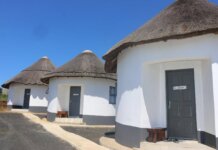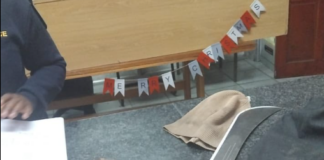
In a move aimed at fostering sustainable practices within the tourism sector, the Department of Tourism has announced the opening of the 9th application window for the Green Tourism Incentive Programme (GTIP). Eligible tourism enterprises are invited to apply for support in adopting environmentally friendly solutions, with the application window running from January 25 to March 31, 2024.
The GTIP, developed in collaboration with the Industrial Development Corporation (IDC), addresses challenges faced by the tourism industry, such as rising electricity prices, strain on the national energy grid, and the adverse effects of water scarcity and drought. The program encourages private sector tourism enterprises to implement sustainable solutions for the management and usage of electricity and water resources.
For the current financial year, the Department has allocated R199,151,179 to disburse to successful GTIP applicants. Since its inception, the GTIP has already assisted 173 tourism businesses nationwide, providing electricity and water solutions with a total grant value of R104,285,673. These solutions have not only reduced input costs but have also enhanced operational sustainability and competitiveness within the industry. An additional 419 active applications are currently in various stages of processing.
Minister of Tourism, Patricia de Lille, emphasized the importance of preserving the legacy of former President Nelson Mandela by supporting initiatives like the GTIP. She stated, “By going green, tourism establishments are able to offer an uninterrupted visitor experience and ensure that the sector can continue to operate despite energy and water constraints.”
Eligible applicants can qualify for the full cost of a new energy and water efficiency audit or the review of an existing audit. Additionally, grant funding of between 50% and 90% (capped at a maximum of R1 million per applicant) is available for approved solutions that improve energy and water efficiency, thereby reducing operational costs for tourism operations.
The GTIP has already produced success stories, with businesses praising the program’s positive impact on their operations. Mr. Mpho Marothi from Kgarebana Boutique Guesthouse in Mpumalanga expressed gratitude for the solar system installed by the Department, enabling his guesthouse to operate seamlessly, free from the hassles of load shedding.
Other beneficiaries, such as Ms. Ingrid Young of Cliffhanger Cottage in Knysna and Ms. Maureen Mehlomakulu from Fort Hook Guesthouse in the Eastern Cape, shared their success stories, highlighting the increased operational ease and business growth experienced through the implementation of GTIP-supported solutions.
The GTIP not only contributes to reducing pressure on the national electricity grid and water resources but also enhances competitiveness and operational sustainability within the tourism sector. As the Department of Tourism continues to champion climate action, the GTIP stands as a pivotal initiative in building resilience and strengthening adaptive capacity within the industry.







